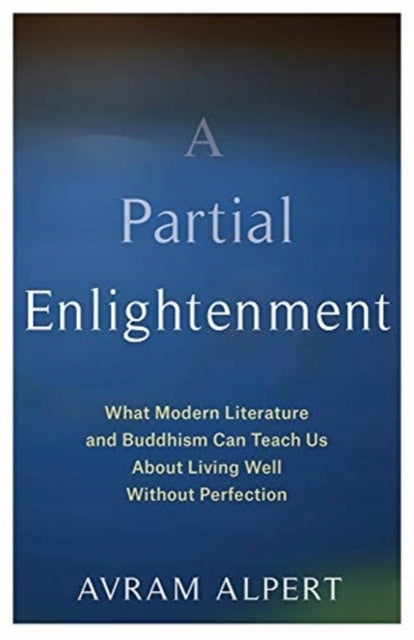Pristatymo terminas visoje Lietuvoje: 5-10 darbo dienų
Pristatymo kaina nurodytu adresu: 3 eur
Prekės aprašymas: Partial Enlightenment: What Modern Literature and Buddhism Can Teach Us About Living Well Without Perfection
"At the end of the nineteenth century, confronted by colonialism, scientific rationality, and new versions of national identity, Buddhism reinvented itself for the modern era as a rational philosophy that became one of the most successful worldviews bothin Asia and the West. Soon thereafter novelists began to incorporate their own ideas about modern Buddhism into their work, refashioning it anew not as a means for overcoming the fractures of modernity but as a realistic philosophy attuned to the tumult of a violent, global era. Avram Alpert shows how novelists from India, Japan, South Africa, the UK, Cuba, and the US realized that modern life did not allow for the Buddhist promise of enlightenment through the overcoming of personal identity, confronted as they were by the reincarnation of failed historical processes--racism, colonialism, patriarchy. Interwoven with his own narrative of Buddhist enchantment and disappointment, he argues that these authors evolved new visions of partial enlightenment, liberation from political suffering, and models of authenticity in an inauthentic world that remain meaningful for understanding our place in the chaos of global modernity"--
In many ways, Buddhism has become the global religion of the modern world. For its contemporary followers, the ideal of enlightenment promises inner peace and worldly harmony. And whereas other philosophies feel abstract and disembodied, Buddhism offers meditation as a means to realize this ideal. If we could all be as enlightened as Buddhists, some imagine, we could live in a much better world. For some time now, however, this beatific image of Buddhism has been under attack. Scholars and practitioners have criticized it as a Western fantasy that has nothing to do with the actual experiences of Buddhists.Avram Alpert combines personal experience and readings of modern novels to offer another way to understand modern Buddhism. He argues that it represents a rich resource not for attaining perfection but rather for finding meaning and purpose in a chaotic world. Finding unexpected affinities across world literature—Rudyard Kipling in colonial India, Yukio Mishima in postwar Japan, Bessie Head escaping apartheid South Africa—as well as in his own experiences living with Tibetan exiles, Alpert shows how these stories illuminate a world in which suffering is inevitable and total enlightenment is impossible. Yet they also give us access to partial enlightenments: powerful insights that become available when we come to terms with imperfection and stop looking for wholeness. A Partial Enlightenment reveals the moments of personal and social transformation that the inventions of modern Buddhism help make possible.
Avram Alpert combines personal experience and readings of modern novels to offer another way to understand modern Buddhism. He argues that it represents a rich resource not for attaining perfection but rather for finding meaning and purpose in a chaotic world.
In many ways, Buddhism has become the global religion of the modern world. For its contemporary followers, the ideal of enlightenment promises inner peace and worldly harmony. And whereas other philosophies feel abstract and disembodied, Buddhism offers meditation as a means to realize this ideal. If we could all be as enlightened as Buddhists, some imagine, we could live in a much better world. For some time now, however, this beatific image of Buddhism has been under attack. Scholars and practitioners have criticized it as a Western fantasy that has nothing to do with the actual experiences of Buddhists.Avram Alpert combines personal experience and readings of modern novels to offer another way to understand modern Buddhism. He argues that it represents a rich resource not for attaining perfection but rather for finding meaning and purpose in a chaotic world. Finding unexpected affinities across world literature—Rudyard Kipling in colonial India, Yukio Mishima in postwar Japan, Bessie Head escaping apartheid South Africa—as well as in his own experiences living with Tibetan exiles, Alpert shows how these stories illuminate a world in which suffering is inevitable and total enlightenment is impossible. Yet they also give us access to partial enlightenments: powerful insights that become available when we come to terms with imperfection and stop looking for wholeness. A Partial Enlightenment reveals the moments of personal and social transformation that the inventions of modern Buddhism help make possible.
Avram Alpert combines personal experience and readings of modern novels to offer another way to understand modern Buddhism. He argues that it represents a rich resource not for attaining perfection but rather for finding meaning and purpose in a chaotic world.

